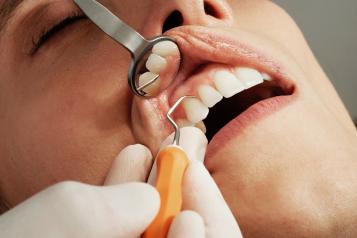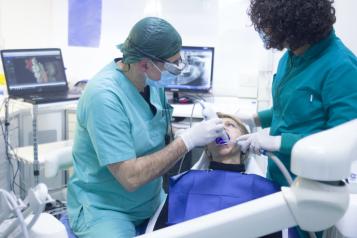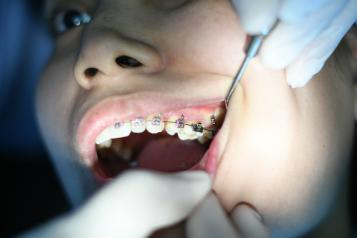Lack of NHS dental appointments widens health inequalities
With living costs on the rise, new findings from Healthwatch England show that health inequalities are widening as people in every part of the country struggle to pay for dental care.
When people find it hard to access NHS dental care, they feel pressured to go private, which is not an option for many. And even NHS charges can be hard for some to afford.
A representative poll of 2,026 adults based in England found nearly half (49%) of respondents felt NHS dental charges were unfair.
What are people saying?
The poll, which looked at people’s experiences of NHS dentistry, including costs associated with dental care, found the following:
- 41% of respondents said they found it difficult to book an NHS dental appointment, whilst one in five (20%) couldn’t access all the treatments they needed.
- One in four (24%) respondents said they had to pay privately to get all the required treatment.
- One in six (17%) reported they felt pressured to pay privately when they booked their dental appointment. Similar numbers (17%) said their NHS dentist didn’t explain the costs before starting treatment.
- More than one in ten (12%) reported that their NHS dentist charged more for the treatments than the advertised NHS charges.
- Almost a third (29%) of respondents said a lack of access to dental care led to more serious problems, making them feel anxious. Others said that a lack of timely dental care made it hard to eat or speak properly (16%) and made them avoid going out (14%).
Widening health inequalities
The shortage of NHS appointments has hit people on low incomes hardest, meaning they are less likely to have dental treatment than those on higher incomes.
The poll suggests that people from social economic group (SEG) A, including high-ranking managerial, administrative and professional roles, are six times more likely to be able to pay for private dental care if they can’t find an NHS dentist to treat them than people from SEG E, which includes pensioners, low-paid workers and unemployed people on state benefits (48% and 8%, respectively).
The new data also reveals a significant North-South divide regarding how affordable people find dental care. While one in five people (20%) living in the South of England said they could afford private dental care if they can’t find an NHS dentist, just seven per cent of those living in the North of England said they could afford private treatment.
Overall, 38% of the respondents feel they are less likely to visit a dentist, despite clinical guidelines recommending regular dental check-ups to keep people’s mouths healthy.
Fewer NHS dentists
The findings come as more than 2,000 dentists quit the NHS last year, according to recent data obtained by the Association of Dental Groups, suggesting a growing trend toward private provision.
Together with Healthwatch England, and local Healthwatch hubs, we have repeatedly raised concerns over the last two years as the twin crisis of access and affordability has continued to grow.
Between October 2021 and March 2022, the Healthwatch network heard from 4,808 people about their experiences of dental care, many of whom were struggling to access timely care.
We're making renewed calls on NHS England and the Department of Health and Social Care to put a reformed dental contract in place before formal responsibility for dental services passes to the 42 new Integrated Care Systems in April 2023.
Downloads
About the poll
Yonder Data Solutions polled 2,026 adults (aged 18+) based in England in February 2022.
Key findings from national dental polling


